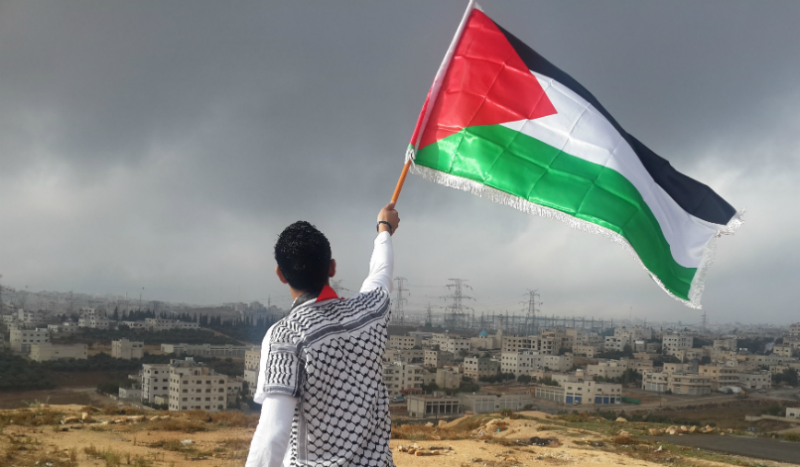This article by Kareem Sakka, Publisher of Raseef22 first appeared in Foreign Policy Blogs on January 10, 2020.
My earliest memories of Israel go back to the October 1973 war, a child, I already “knew” Israel is an invader in what was a sleepy part of planet earth. Despite radio and tv stations everywhere claiming Arab victories, even then I knew this was fake news, kids know liars from their intonation.
It’s hard to imagine Israel was only 25 years old. Looking back, Lebanon’s media coverage of the war(s), and the coverage of the concept of Israel proper, was probably the least fictional compared to other Arab outlets boasting about victories.
Even then, I don’t think I ever sensed real hope for a return to Yaffa from anyone. My father never looked back, the trauma must have been too painful, everyone in his family admitted to themselves they will never return, not a word uttered about going back, not at home, not in family gatherings, not on TV, the goal had moved to recovering the West Bank and Sinai. The shame was overwhelming hence the denial. The photo of the Bauhaus style family house in Jaffa’s Ajami district that my grandmother kept in her bedside table is engraved in my memory still.
For most people, life went on, everyone I knew was employed and making ends meet, Lebanon welcomed and offered a good start to many migrants. Entrusted with liberating Palestinian lands, the PLO and its factions looked nothing like the humans I knew, they carved a persona associated with Nasser, the Soviet Union, Guevara and other bullies this teenager saw through his Catholic school educated eyes. They wanted a people that look like them, rather than the other way round, refugees don’t have the luxury to elect their leaders after all.
As time went by, the Qadiya, (the Palestinian Cause) took center stage with all despots, destroying Israel was a rallying tool used from Baghdad to Algiers and even Tehran to rally and pacify masses, these despots hijacked, confiscated and traded the Qadiya. When Sadat surprised the world with his courageous visit to the Knesset in Jerusalem, there was hope of recovering the West Bank, Jerusalem and even the Golan Heights, there was hope for peace, I heard adults whispering about driving back to Jaffa, retracing the short trip many Palestinians took to Beirut after the Deir Yassine massacre. Shamir and Sharon aborted all hope, cementing a relationship of hate and domination, soon after, in 1982, Israel invaded Lebanon, seeing Israeli soldiers parading in Beirut was nauseating, as a teenager, my relationship with Israel was minted. “I am moving on with my life, not looking back, I will build a new life turning my back to the Mediterranean’s eastern shore”, a feeling millions in the region have experienced as they were forced to seek refuge in safer lands. The ideas of the right of return or fair compensation never crossed my mind, I had the luxury to be able to say: The land and the right of return are non-negotiable.
Fast forward 36 years, on the 70th anniversary of the Nakba (the Palestinian catastrophe), my father surprised me when he spoke on the right of return for the first time, in a few well-chosen words, he set my compass straight: The right of return is sacred, Jerusalem is the capital of the Palestinian people, Israel is an invader, anything less than a one state solution is unacceptable.
Not one day goes by for him without a thought set in Jaffa. How can we, refugees, skip a day of yearning to return when we read and see daily trespasses onto a dehumanized people stripped of their dignity by tourists from around the world who are invited to settle and expel the indigenous inhabitants, that is how we Palestinian refugees see it. Injustice and the pain of exodus have an inextinguishable flame it seems, and the flame is alive with my children, third generation refugees, born less than a mile from where the Balfour Declaration is saved.
Many moderate Palestinians paid too high a cost for speaking up on the issue, on one side the establishments (with an s for we have two competing Palestinian authorities mired in problems on both sides of the 48 Palestine) fear their grip on the Qadiya is weakening, attacks come from every side of the spectrum. Remaining committed to a return to Palestine is not an easy choice for the next generations, surely the refusal to naturalize Palestinians wherever they are in the Arab countries has kept that flame burning bright.
The idea of peaceful coexistence has proven an illusion until now, but we must be ready to return, accept a one state solution, and we must start planning now; Before long, Israel will celebrate 100 years of occupation, will it be able to maintain apartheid state practices? Until a fair one state solution is accepted by Palestinians, the injustice and dehumanization Israel is committing on a daily basis against Palestinians living under occupation or as refugees will continue to haunt Jewish people in Israel and beyond.
Raseef22 is a not for profit entity. Our focus is on quality journalism. Every contribution to the NasRaseef membership goes directly towards journalism production. We stand independent, not accepting corporate sponsorships, sponsored content or political funding.
Support our mission to keep Raseef22 available to all readers by clicking here!
Interested in writing with us? Check our pitch process here!





